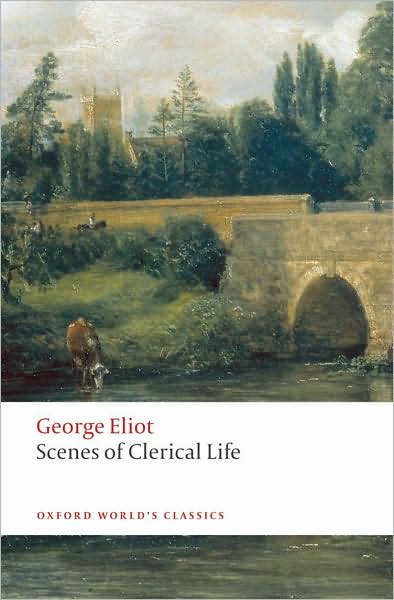
A companion piece to this week’s episodes of PZ’s Podcast, which deal with the Protestant (architectural) face of Anglicanism:
 There are few sympathetic portrayals in literature of Anglican or Episcopal clergy who are Evangelicals. Most novelists have described Anglican Evangelical clergy as self-righteous, puritanical, and hypocritical. The classic portrayals are ‘Mr. Slope’ in Trollope’s Barchester Towers, ‘Mr. Honeyman’ in Thackerey’s The Newcomes, and ‘Mr. Chadband’ in Dickens’ Bleak House (tho’ Mr. Chadband may be a Dissenting Minister rather than a Minister of the Established Church). There is also a devastating portrait of a young ‘Simeonite’ (i.e., Evangelical) clergyman at Cambridge in Samuel Butler’s The Way of All Flesh. This last one you’ll almost think you have met.
There are few sympathetic portrayals in literature of Anglican or Episcopal clergy who are Evangelicals. Most novelists have described Anglican Evangelical clergy as self-righteous, puritanical, and hypocritical. The classic portrayals are ‘Mr. Slope’ in Trollope’s Barchester Towers, ‘Mr. Honeyman’ in Thackerey’s The Newcomes, and ‘Mr. Chadband’ in Dickens’ Bleak House (tho’ Mr. Chadband may be a Dissenting Minister rather than a Minister of the Established Church). There is also a devastating portrait of a young ‘Simeonite’ (i.e., Evangelical) clergyman at Cambridge in Samuel Butler’s The Way of All Flesh. This last one you’ll almost think you have met.
One of my favorite Victorian clergyman in literature, a higher type of Anglican Evangelical, but also from Cambridge, is The Rev. Theophilus Cardew. ‘Mr. Cardew’, a character in ‘Mark Rutherford’s (aka William Hale White’s) novel Catherine Furze, is a self-deceived and quite selfish young clergyman who is also sincere, so far as he knows himself. He comes very close to getting into the hottest water he could possibly get into, but is spared, by another character; and oddly saved, mainly from himself. Theophilus Cardew becomes a lesson for all who believe they are called to Holy Orders. The novel in which he figures is also a rare study of Christianity in truly local terms, for better and for worse, in which there are both entirely credible and admirable Christian characters as well as misguided ones. Catherine Furze is almost always a favorite among students.
Yet, “we look for another” (Yoda) ! There is another.
The most sympathetic portrayal of an Anglican Evangelical minister in nineteenth-century English literature must be The Rev. Edgar Tryan, the hero of George Eliot’s novella “Janet’s Repentance“, which is the third of her Scenes of Clerical Life (1858). Scenes of Clerical Life is a book you simply must read. Tender, clear like an old black-and-white movie, full of heart, full of reality, imbued with personal experience of her subject, Scenes is one of the most beautiful first-novels ever written. Although Middlemarch is probably the great one, Scenes of Clerical Life lights up the night, and especially in terms that will speak to Christian readers. Take, for instance, the following passages, which take place when Mrs. Dempster, aka Janet, encounters Mr. Tyran making a house call to a sick member of the parish:
“Janet was surprised, and forgot her wish not to encounter Mr. Tryan; the tone and the words were so unlike what she had expected to hear. There was none of the self-satisfied unction of the teacher, quoting, or exhorting, or expounding, for the benefit of the hearer, but a simple appeal for help, a confession of weakness.”
“The most brilliant deed or virtue could not have inclined Janet’s goodwill towards Mr. Tryan so much as this fellowship in suffering. … The fullest exposition of Mr. Tryan’s doctrine might not have sufficed to convince Janet that he had not an odious self-complacency in believing himself a peculiar child of God; but one direct, pathetic look of his had dissociated him with that conception for ever.”
No hypocrisy here, and also no anger, no edge, no antagonism at a ‘faith left behind’. Because George Eliot had left behind the Evangelical faith of her teenage years. Converted during the ministry of The Rev. John Edmund Jones in Nuneaton, near Arbury, where she was born — you can visit the Mary Anne Evans sites today, and more than two members of the Mockingbird team have visited them — Eliot stopped attending church in her 22nd year. For many years after that, she devoted her whole energy to finding out what she believed and what she could believe. That is a long, complicated story, and a very worthy one.
Nevertheless, she never lost her sympathy for the Evangelicalism of her roots, and for its seriousness and its compassion. Here is what she wrote concerning Anglican Evangelicalism in a letter to a friend written in 1859:
“I have no longer any antagonism towards any faith in which human sorrow and human longing for purity have expressed themselves; on the contrary, I have a sympathy with it that predominates over all argumentative tendencies.”
[More quotes coming soon.]

COMMENTS













